#its not as Intense as williams though obviously. no dying over and over again
Explore tagged Tumblr posts
Text
I think Henry also goes to hell after pizza sim. You cannot convince me that man got into heaven
#similarly to cc designing william's hell i like to think charlie designed henrys. shes allowed a little torture as a treat. she deserves it#its not as Intense as williams though obviously. no dying over and over again#i think she just has henry sat in a room with a single song playing on loop forever#and a controlled shock button connected to himself as his only form of entertainment. yknow.#would you rather play fnaf forever or just hear the music box song on loop forever with no way to turn it off
160 notes
·
View notes
Photo

Performing Hamlet : actors in the modern age
by Jonathan Croall
In 1997 it was Alex Jennings' turn to play Hamlet for the Royal Shakespeare Company, directed by Matthew Warchus at Stratford and the Barbican in London. The following year the production was staged at the Kennedy Centre in Washington, and at the Opera House of the Brooklyn Academy of Music, New York.
Cast: Claudius: Paul Freeman, Gertrude: Susannah York, Laertes: William Houston, Horatio: Colin Hurley, Polonius: David Ryall, Ophelia: Derbhle Crotty, Player King/Ghost: Edward Petherbridge, Gravedigger: Paul Jesson.
I know that by cutting the play you could diminish it, but by cutting a couple of courses from a banquet you can make the flavours sharper and richer.
This was Matthew Warchus' argument for his decision to cut around a third of Shakespeare's text for his stylised, modern-dress RSC production of Hamlet. Conflating the three existing versions of the play, his aim was to focus on the domestic story, since 'Hamlet is a play absolutely saturated with the words father, mother, sister, brother, son, daughter, uncle'. He further explained: 'I feel that what I am doing is taking the play out of the hands of the academics and intellectuals and bringing it back into the area of relationships', adding that 'more than any other play I have directed, I am doing this with my heart, not my head'.
In this modern Elsinore the two families lived together with their staff in an isolated house. The play began with Alex Jennings' Hamlet holding his father's ashes in an urn at the front of the stage, then scattering them on the ground in front of a screen, on which a black-and-white home movie showed him as a boy, playing in the snow with his father and running joyfully into his arms. Simultaneously the audience heard over the speakers Claudius announcing 'Though yet of Hamlet our dear brother's death the memory be green'.
The screen was then flown away, casting Hamlet into a raucous, vulgar party celebrating his mother's wedding to Claudius, with balloons, fireworks and bridesmaids, with champagne corks popping, pop music blaring, coloured lights flashing - 'a gaudy purple disco' as one critic described it - and Claudius groping Susannah York's smiling Gertrude in foll view of the guests. Lurking on the sidelines, Hamlet took polaroid photos of Claudius, which he would later use in the closet scene to show Gertrude the contrasting images of her two husbands. The first scene was cut, the Ghost instead initially appearing at the party in a smoking jacket, speaking to Hamlet about 'murder most foul', then drifting away.
Jennings' disturbed Prince, occasionally drawing on a cigarette, was clearly on the edge of a nervous breakdown. He spoke 'To be or not to be' with a pistol pointed at his head, then carried it around in a paper bag, and considered using it when be came across Claudius at prayer. Soon after he employed it to kill Polonius, and in the final scene, after Claudius had drunk the poison, he fired a bullet into his dying body.
The play-within-a-play provided a striking image: Robert Smallwood described 'the eerie, jerky presentation of The Murder of Gonzaga as a shadow play on a screen, in front of which Hamlet pranced in a brilliant crimson jacket, white face and painted-on smile - circus master, clown, MC - and the shadow of Lucian us, bending to administer the poison, loomed huge and distorted in front of Paul Freeman's suave, expensively suited Claudius, while Hamlet joined in with sing-song recitation of the incriminating lines, until even the hard-headed self-control of the usurper could take no more'. With Fortinbras and the attendant politics excluded, the play ended with 'And flight of angels sing thee to thy rest'; Horatio's voice was then heard over the speakers announcing 'all this can I/ Truly deliver'.
In a diary piece published during the run Jennings admitted: 'I never particularly wanted to play the part. Adrian Noble, the RSC's artistic director, asked me; I was quite surprised, but there was no possibility of saying no - it seemed slightly churlish, and I knew I probably wouldn't get the opportunity again, as I was fast approaching forty.' He also mentioned his recurrent back problem. 'On stage, the adrenalin takes over, but sometimes I notice it. Hamlet is quite physical; you're on stage for four hours and you are knackered by the end of it, physically and mentally.'
After playing the role twice in one day in a matinee and evening performance, he confessed to being 'absolutely exhausted'. We have a lie-down between shows, and I get up feeling a bit punchy before the second one. I don't do any special preparation; I just try to empty my head and see what happens, see what the words do. What's so wonderful about Hamlet is that you are never going to be definitive; you just have to try to tell the story in a clear and fresh way. Luckily the play is pretty good, so it supports you, and there's always something else to be mined from it.
His exhaustion found expression that night: 'Something went wrong with the sound system. I broke a prop in a fit of pique in the wings - Hamlet's father's urn. I threw it at the table. I don't usually do that kind of thing.' There was Smallwood observed, 'no denying the production's absorbing and exciting theatricality'. He also admired Jennings, who spoke with all that intelligent, graceful command of the verse that one has come to expect of him, and made one feel the isolation and pain of Hamlet with unrelenting intensity.' Ann O'Bryan praised him for 'a magnificent tour de force of verse speaking. He's a brilliant master of Shakespeare's verse, and here in a deliberately downbeat conversational tone he makes every thought crystal clear as if newly minted, so that the sense and the beauty of the poetry shine through.' Charles Spencer was less sympathetic: 'Jennings's pistol-toting Hamlet had warmth, charm and a wry self-mo king humour, without ever penetrating the play's depths. This was Hamlet Lite.'
In 1998 the production moved to Brooklyn, as the opening play in a five-play RSC eason. It met a harsher critical reception than it had in England. In the New York Times Ben Brantley criticised Warchu for providing what is less a thoroughgoing interpretation than a series of noisy distraction ... The evening is shot through with adrenalin, and it features a few stunning images but at the sacrifice of any emotional continuity and often clarity of plot. Tremendous effort has obviously been exerted to bring freshness to familiar scenes and speeches, which are sometimes tossed off at such a speed as to be incomprehensible. The overall effect is one of bright sparks of electricity without any flowing current ... As an interpretation of Shakespeare's most introspective play, it sticks exasperatingly close to its showy surface.
Allan Wallach was similarly uneasy:
By now, unfortunately, these kinds of modernising devices have hardened into trendy cliches. Here, they become substitutes for a point of view; the production seems to have little on its mind but costumes and cleverness ... With very little heft to the characters, the tragic elements are curiously remote. Even when the lines are impassioned, you don't feel the emotion driving the characters ... While the RSC may be right to strive for more inventive ways to rage a classic, the result here doesn't give the play overall the dimensions it demands.
8 notes
·
View notes
Text
Midsommar [spoiler review]
Ari Aster has released his second feature film, Midsommar for which he writes and directs and it is a vast, expansive experience that threw me through a kaleidoscope of emotions, which amazingly is something I can’t say for a large number of horror movies coming out these days. That being said however, I’m not entirely sure that I could confidently class Midsommar as a horror. I don’t know if I’d really class it as any specific genre at all. It is certainly its own beast and for that, I would commend it highly. As something that is so dense with detail I will probably be jumping back and forth to moments in the story, giving this review a somewhat non-chronological structure. I can’t possibly touch on everything, especially as I’ve only seen it once. I believe it is something that needs multiple experiences to fully appreciate and is a movie I’d love to experience again.

The talent on display in regards to basically every technical aspect of the film is to be praised tremendously. I loved the cinematography and the look of the movie; the colours and the sets were all gorgeous. Mostly set in broad daylight, this stylistic choice is not something I’d immediately associate with a movie that was going for this type of vibe. Mixed with the set designs, the look of the movie made for a visual feast I couldn’t keep my eyes off of. What made the aesthetic qualities of the movie pop that little bit extra for me was the camera work and how it moved; I think of shots like when Dani goes into the bathroom in the first act and the camera pans over the door frame and twists to show her standing in the toilet of the plane. Or when they’re driving across Sweden and the camera flies over the car and turns to end up in an upside down position, perhaps foreshadowing what the characters are in for on this journey. It’s details like this that cracked a huge smile from me as I was watching, not to mention it separates Midsommar from so many other movies that try to depict suspense and terror. Furthermore, a feature that I found to be intensely thoughtful to accompany the fantastic visual display was the editing, or more specifically the cutting of shots. Often I see movies follow a certain formula when it comes to this facet; conversations cut together with a shot of one character and then a reverse shot to show another character; wide angles to establish locations or buildings, then cutting to the inside of the buildings themselves. There’s seldom ever much of a flare to the editing of a movie but I saw Midsommar capture that charmingly to add tension or even to highlight a joke. Accompanied by the score, a lot of these shots gave off an eerie tone that made me feel pleasantly uncomfortable. I loved the low, stretched out notes of the music that went that extra step further in order to make me feel slightly distressed. The sound design was incredible and generally it isn’t a facet I’d pick up on unless it was either done very well or very poorly. There were sections where even items like cutlery or people walking would catch my ear in a noticeably pleasing way. It shouldn’t be undervalued at all; great sound design can elevate a movie so much and I’m both glad and impressed at how well it was executed here.
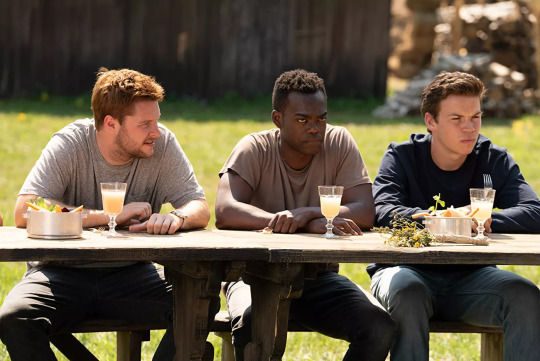
Midsommar’s first act may have unfortunately contained a lot of my favourite moments. It introduced the main characters and worked to convey the relationships between Dani and Christian, as well as with Christian and his friends and how they all felt about Dani. I appreciated the time put into the dynamic between Christian and his friends and how they viewed Dani, although this was sort of thrown away once they got to Sweden; I never saw any sort of resentment from them towards Dani after that. Pelle obviously felt a lot differently about Dani, going as far as to kiss her during the latter stages of the movie. I’m not sure why it was necessary to have Pelle feel this way and I don’t understand what it added to the story besides forcing some conflict into Dani’s relationship with Christian, which was being achieved on his end regardless. Along with this, we are also shown the unfortunate and upsetting demise of Dani’s family which acts as a plot point in helping Dani to decide upon accompanying Christian and his friends to Europe. Seeing what happens to Dani’s family may have been the most affecting part of the movie for me. To top it off, her reaction was absolutely chilling; I love how Aster gets such raw and believable performances in his films. Dani’s loud, pained cries made me feel for her so much and forced a deep discomfort into me that carried through as the credits and title came on screen. Something that intrigued me quite a bit during this first act is how conversations were filmed through mirrors. We would see a couple of instances of characters talking to other characters that were reflected in a mirror. These static shots that carried on for a short while added to the tense atmosphere and the conversations or arguments that were taking place, imposing a kind of separation between those we could see outside the mirror and those we see inside the mirror. The main cast we’re introduced to in America are all good and give believable and compelling performances. Florence Pugh was fantastic as Dani; William Jackson Harper was decent; Will Poulter was great and one of the stand-outs from my experience. Vilhelm Blomgren portrayed quite an interesting character in Pelle. Christian seemed to be the only one that rubbed me the wrong way because he was such a massive dick the entire time and he was never redeemed. Not to say Jack Reynor’s acting was bad (quite the opposite in fact), I just didn’t sympathise with the character. There are aspects to the characters and the decisions they make that wound me up a bit but in terms of the acting, they were more or less solid.
The secondary characters, or mainly the Swedish locals didn’t stand out as individuals to me, possibly because they were portrayed more as a collective, which is fine but I would’ve liked to have seen some character development from at least a couple of them. Now, I say it’s unfortunate that I derived the most entertainment out of this first act because after that, Midsommar suffers quite a bit from some pacing issues. This movie is almost two and a half hours long and it didn’t feel like it needed to be, especially with a plot that only allows for so much exploration. The plot itself is quite basic, but it is displayed as something so grandiose in scope that it comes across as being eminently pretentious. Could it be the insanely short production time that went into making Midsommar that makes it feel fairly lacking in a few areas? Or is this genuinely the cut that Aster wanted? Results from a quick search of the movie told me that around half an hour of its running time was cut due to the content it presented. Consequently, this will make the home video release different to some degree than the cinema release as it may come to our TV screens as a director’s cut. If this is in fact the case (and I do intend to buy the blu-ray upon its release) then could it be that we’ve not even seen the movie that Ari Aster wanted us to see? Will a director’s cut make it better, worse, or simply just longer? I for one am assuredly excited to see what the end result is.
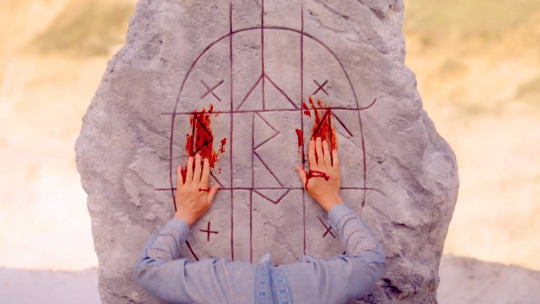
A big problem I had with Midsommar is how early it peaked in regards to the horror. One of the first things the main characters are presented with upon arriving at this rural community is the idea of people being separated into groups depending on their age: the concept that they didn’t consider themselves adults until a certain age; that they didn’t work until they were old enough to; that they died when they reached a specific year of their life. They’re then told that a ceremony will be held the next day and while our main characters ask what it is, we see William Jackson Harper’s character, Josh smiling in a sly “I know what it is” kind of way. His friends try to ask what he knows, to which he does not divulge anything. What follows this is a scene wherein two elderly people sacrifice themselves by falling off of a cliff in front of the other members of the community. To me, this scene was beautifully unsettling for a number of reasons. Despite expecting them to jump initially, I was still shocked at how well it was executed both in relation to the story and in a technical sense. At first, the woman jumps off of the cliff, dying instantly with a bloodcurdling crunch. Of course the characters from America and the characters we are introduced to earlier from England are understandably shocked. Even Josh reels back in surprise which I found to be a little strange considering how he acted as though he knew what was going on beforehand. What did he think was going to happen if not that? We’re never told. As the old man approaches the edge of the cliff and the English and Americans clue in to what is happening, they react as I’m sure we all would to what happens as he prepares to jump. He lands in a much more awkward fashion with a smaller sound that is no less distressing. Only this time, he doesn’t die... The scene is then racked up a notch as he screams out in pain at having his leg torn off and his body broken on impact. The rest of the Swedish onlookers scream in pain with him and it is terrifying to hear. I imagine this painted a picture to most viewers that the locals we are presented with in this rural Swedish village are all somewhat spiritually connected; are able to empathise with one another's emotions in a way that makes them able to feel the sensations of those they’re close to. Undoubtedly the torment doesn’t stop there and Aster has to quite literally hammer home what this ceremony is all about. In order to put the old man out of his misery, a group of people take it in turns to smash his head in with a large mallet, causing further stress to the main characters, but stopping all of the Swedish inhabitants from screaming in agony. That whole scene… was awesome! I loved it and it stands to be maybe my favourite sequence from the movie. The unfortunate part is that after this happens, I expected everything to amp up a bit and start showing me more uncomfortable and fucked up things but sadly this wasn’t the case. In a sense, it was as if the movie blew its load on this earlier scene and didn’t focus on too many other stand-out plot beats which was pretty disappointing. For some reason, Will Poulter’s character ‘Mark’ had slept through this ceremony and as a result, hadn’t experienced what his friends had. Whether this was done for a specific reason I’m not picking up on or simply so that he could continue to crack jokes is beyond me. I will give credit where credit is due: this movie made me laugh when it wanted me to. The inclusion of comedy in Midsommar was expertly handled and never made it come across as a lame horror-comedy.

Prior to this and upon arriving in the green fields of rural Sweden, the protagonists all get high and lie around in the grass. While the comedy kicks in here, it is also notable for the reaction of Dani as she starts to feel the grief of losing her family once more and urgently tries to get rid of it. I liked this scene and how it played slightly with the visuals which foreshadowed the inclusion of drugs and their effects later on in the movie. Sadly with what happens to Dani’s family in the first act, I’m not sure it was that purposeful overall, despite liking how it was depicted. Yes, this event does explain how Dani acts for sections of the film and yes I did like seeing it act as a catalyst for why she goes to Sweden in the first place, but I’m not sure it was hugely purposeful when referring to the movie as a whole. It never came back in a way that affected the narrative or the story that was being told. It was just something that happened to the protagonist that caused her a great deal of upset. Almost as if they could have died in any number of terrible circumstances and it wouldn’t have made a difference. While I really liked the characters’ first drug trip sequence, I got worried early on that Midsommar was going to take an approach that put the trips and the drugs at the forefront of the movie, akin to something like Shrooms (which was just awful) and sure, they played a big part but it did more to enhance what was actually happening rather than fabricate a story that didn’t really take place, just to have them wake up in a field exclaiming how crazy their collective trip was.
As the characters start to become more and more under the influence through the drugs that they’re given, we see the world warp around them. Trees ripple and form faces; the food would shift; flowers would pulse in accordance to Dani’s breathing; characters’ facial features would distort. Dani starts seeing grass sprouting from her hands and feet, or vines mimicking her movements to show how she’s progressively becoming part of this society. Characters like Christian however start experiencing the drugs in a negative and more aggressive way, as if they’re being attacked by senses! There is unease and terror in how Christian experiences the festival, whereas Dani’s experience is comparatively happier. The contrast of how Dani was being accepted and Christian was being rejected was thrilling to see, markedly in how Dani’s demeanour changed as she found herself integrating with everyone else. Although I must say I’m not sure why they kept drinking that drugged water that looked like muddy urine. Christian almost refuses to drink it until he’s told “it’s spring water with special properties” which was all the information he needed apparently! What properties were they? Doesn’t matter; he drank it anyway. The moronic decisions manage to manifest more throughout the movie, however. Regrettably we don’t get to see much of Mark and Josh’s experience with the hallucinogens or even much of the festival because their time is cut short in a manner I didn’t find all too entertaining. Mark is the first to go from the original team. Due to urinating on a sacred tree, he is murdered off-screen and has his face cut off. This could’ve made for a superb scene if it were done right but the way it was handled came across as hollow. Elements akin to this could have worked to convey unease and terror, but they are implied rather than shown which can work in some circumstances but I would’ve liked to have seen something more memorable and haunting instead of seeing an after-product and thinking “okay well I guess that happened”. Show him being mutilated, you cowards! You don’t even have to show it; just possibly what happens in the lead up! It would’ve made for a far more compelling story beat! All that happens is a girl comes up to him as he’s eating with everyone and asks to show him something. His response is just “she’s gonna show me” and leaves. He doesn’t question what he’s about to be shown; he just gets up and wanders off with a girl he doesn’t know in a foreign country, going purely off of Pelle’s word that everyone there is great! What a way to force that in! Josh is next on the kill list because he took some pictures of a sacred book when he knew he wasn’t supposed to because either he’s just insensitive to other peoples’ cultures, or he thinks it’s okay as long as it’s for his thesis. After this happened I kind of dropped off. With most of my favourite characters gone and the remaining characters questioning everything less and less, not only was there not much left to ground the film in a world that would consider the things that were happening to be deeply disturbing, but also from the protagonists’ perspectives as well.
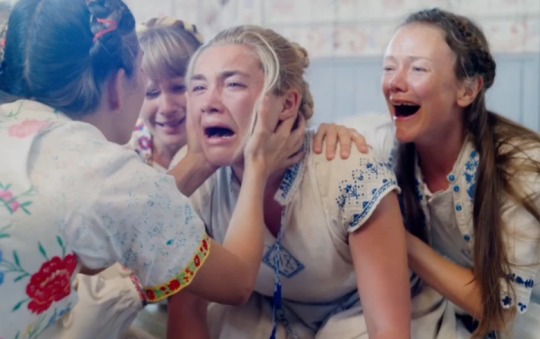
I’ll acknowledge I’ve been railing on this film a considerable amount... with good reason. But despite being heavy on the criticisms, I still consider Midsommar to be a good, even great movie! I adore films that beg me to revisit them and learn more about them with each watch. Sprinkled throughout Midsommar are a tonne of small details and I’m sure I didn’t pick up on everything; in fact I hope I didn’t. Along with strange “what the hell?” moments like putting scissors under the baby’s pillow (I think that’s what it was anyway) that I still don’t understand, there also exists things that maybe don’t need to be thought about but are still nice to see included, such as goats and cows that took the immersion into this countryside village a notch higher. Or to draw from more obvious details that add depth to the people: going back to how they would all scream in unison, for instance to empathise with another’s emotions; when Dani sees Christian cheating on her, all the girls she is with cry and scream with her, possibly to experience what she’s feeling and/or to show her that they consider her to be part of their people, which also manages to contrast with earlier in the movie wherein she’s with Christian in her apartment but she’s the only one experiencing the intense pain as Christian tries to comfort her.

Upon entering the third act I started to wonder what the actual point in Midsommar was. Could it possibly be one big metaphor for grief and how we can choose to deal with it? There didn’t seem to be that grand of a point being made, either in the relationship between Dani and Christian, the relationship between America and Europe, or just the presence or influence of cults and religion in different parts of the world; those ideas seemed somewhat surface level. So I can’t help but think it was trying to convey a more metaphorical meaning. Either that or its meaning was just “Europe’s weird, man”. In this way, the finale didn’t leave much of an impact besides leaving me feeling quite hollow and disappointed, wondering what all that had been in service to. I can’t say Midsommar blew me away with much of what it showed me. There were a few decisions made which weren’t all that original in how they were executed and there were some dumb moments that had me questioning why they were included at all. Yet I would never say it isn’t unique in what it achieves; I can’t disregard all of the jaw-dropping technical showmanship and the interesting, creepy ideas that managed to meld horror and suspense and mystery and comedy into something I simply don’t know how to categorise. I could talk for ages about this film and still not touch on absolutely everything about it. Ari Aster is clearly a talented guy and I can’t wait to pick up the blu-ray and watch it a million more times. Along with that, I am for sure going to see whatever he puts out next. These are the kind of movies I love seeing and supporting and I honestly can’t recommend Midsommar enough because it’s something I feel will resonate with different people in different ways, evoking more than a few interpretations of it. It is so worth the watch.
★★★½
24 notes
·
View notes
Note
do you have any good star trek novel recommendations? (tos please!!)
Yes! I do! I’ve been meaning to make a post about this for…so long, whoops, but I’ll answer this ask instead! (might still make the post someday, idk tbh. I probably should though because since I have so many Trek books I haven’t read yet, I might like more enough to rec them, haha.) Okay, anyway… (By TOS I assume you mean the original Enterprise crew, I hope it’s okay that not all of these actually take place during TOS, aka the five year mission.)
Sarek by A. C. Crispin You might have seen me mention this one the other day on my blog; I really love it. It takes place post TUC, Amanda is dying and Sarek is uncovering a plot that’s way bigger than anyone realizes at first… Also there’s some stuff about Jim’s nephew Peter (from the episode with the farting flying pancake aliens? lol.) and yeah, it’s a great read. All the parts with Sarek and Amanda are lovely and sad and the plot is interesting and it’s just all around enjoyable.Definitely recommend.
Collision Course by William Shatner This is the other one I mentioned on my blog already, and this one is probably my favorite Trek novel. Spock is nineteen and Jim is seventeen when they first meet, and they’re both too smart for their own good and get into trouble and…well, all the things you expect from Jim and Spock. It was originally supposed to be the first in a series, but for various reasons, there probably won’t be any more (CRIES) but this one is so good. And it doesn’t end on a cliffhanger so it’s okay. I especially enjoyed tbh how Bill appreciates what an effect Tarsus would have had on Jim (this is only three years later, after all) and it’s still very visible on lil’ Jim. Not a spoiler, bc a reference is made to Tarsus on…literally the very first page. Lol. Anyway, this one is really fun and sometimes sad (bc Tarsus) and just really great! Also, at least one of the plot twists genuinely surprised me, which is rare… I normally see them coming a mile off in Trek novels. ;) (Which doesn’t usually take away from my enjoyment, tbh!) But I really appreciate when they can surprise me.
Star Trek: The Motion Picture (novelization) by Gene Roddenberry You knew this was coming. This is an absolute must read if you’re a Spirk fan, tbh. I’m not all the way through with it so far, about halfway done, but I can tell you it’s a much better way of telling the story of TMP than TMP. Lol. The movie has this simple feeling and Jim rushing to Spock on the bridge and saying his name like a prayer and other things, but it also has all those dreadful special effect sequences. And the novel has its own gay to offer. I don’t necessarily agree with the way Gene wrote Jim (in fact, it’s been forever since I picked it up but I distinctly remember being bothered by it), but…yeah, at least borrow a copy from someone and witness the gay parts for yourself, haha.
Star Trek IV: The Voyage Home (novelization) by Vonda McIntyre I’m going to go ahead and say right now that if you’re going to read the novelizations, go for the ones by Ms. (Mrs? idk) McIntyre. She wrote 2, 3, and 4. I haven’t read 3 yet, but I have read 2 and 4 and I like that she actually adds in scenes and stuff that weren’t in the movies. It makes me feel like I’m actually getting something additional for my time even though I’m reading a novelization of a movie I’ve already seen. I like this one, because there was quite a bit that wasn’t in the movie (I have a hunch the extra scenes, at least some of them, might be based on the script? because the scene with Sulu’s great….something or other grandfather as a child meeting Sulu is in the book, and I know they tried to put that in the movie but never managed to. anyway.) But yeah, there’s actual stuff in there that’s not in the movie! that’s the way it should be. Also…she ships Saavik/David pretty clearly. :P Like I said, haven’t read TSS novel yet, but I know she was working it into 2, and it’s mentioned in 4 as a thing. Anyway…good stuff! This is the one where the whole “Vulcans get drunk on chocolate” thing comes from btw :))) (Avoid the novelizations by JM Dillard! Avoid!!! I’ve read them and they’re not good.) (Oh and pretty much everything I’ve read by Vonda McIntyre I’ve enjoyed, she’s a good Trek writer.)
Dwellers In The Crucible by Margaret Wander Bonnano Margaret Bonnano is another writer I just generally recommend bc I like all the stuff by her that I’ve read, too. Anyway… okay so let me say that this book’s main characters are not Jim and Spock. I know, I know. But wait!! It’s so worth a read!! Jim and Spock are in it, not much, but when they are they’re literally so married and explicitly confirmed to be t’hy’la… :)) it’s great. okay anyway. The main characters are a human named Cleante and a Vulcan named T’Shael. They are ladies. THEY ARE GAY AF. OKAY. THAT ALONE MAKES IT WORTH A READ. it’s so glorious.I mean the book only says they’re friends but…in the same way Jim and Spock are friends in canon. they’re super freaking gay. and also there are like a thousand incredibly obvious parallels between our human and vulcan lady and Jim and Spock. it’s fun. also Sulu goes undercover as a Romulan. :D yeah, just…read it. it’s great. (it made me angry at one point. I’m still angry. but I recommend it.)
Ishmael by Barbara Hambly This one was, for me at least, just a genuinely good read. I really enjoyed the plot. So…Spock goes back in time to 1867, not willingly I don’t think. And he gets amnesia. So right there are two tropes I ADORE (time travel and amnesia, I don’t care, I LOVE THEM.) He lands in North America, in Seattle if I remember correctly. And that’s the plot pretty much. Haha…okay, there’s a Klingon plot, the Enterprise crew searching for Spock, Spock trying to adapt and hide he’s an alien while bonding with the members of the community he lands in. Also Jim and Spock’s reunion is a bit gay. (Warning for spoilers if you click that? it’s pictures of when they find him near the end, so. Yeah.) I just really enjoyed the book in itself, the plot and everything. Fun!
Enterprise: The First Adventure by Vonda McIntyre In light of the tv series called Enterprise, the title of this one might be a little confusing… But it’s most definitely TOS and has nothing to do with Enterprise, haha. The premise is that it’s the first voyage of the Enterprise with Jim as the captain. And the mission is…to transport a theater troupe. It’s ridiculous and so silly, I know, but it’s really fun. There’s a winged horse, a really un-Vulcan Vulcan (I think he’s Spock’s cousin? I don’t really remember tbh), Spock heckling the theater troop, Uhura being a good friend to Janice…that’s all I remember off the top of my head, but I remember really enjoying it when I read it!
Unspoken Truth by Margaret Wander Bonanno Remember what I said about those two writers? Lol. Okay so this is a Saavik-centric book. I really love Saavik, okay? So, as you might know, Saavik is half Vulcan, half Romulan. Well in this book (actually, in a bunch of books, by at least three different writers, it seems to be her accepted backstory in the novels) she was the result of a terrible experiment by Romulans, and when it didn’t work out, she and a bunch of other children were abandoned on a planet called Hellguard, and…some really horrible things happen. Anyway, Spock saves her, mentors her, and Amanda and Sarek basically adopt her (literally, she calls them mother and father, IT’S MY FAVE), well anyway, years later, either after or during TVH, she learns things are happening to the survivors of Hellguard…and the story goes from there. This was really good! Intense tbh. I loved it, but then, I love Saavik. If you don’t like her… But if you do, you’ll enjoy this one!!!!
Doctor’s Orders by Diane Duane Diane Duane is another must read author. All her books are excellent. In all honestly, I don’t remember too much about the plot of this one, but I know I liked it! Dr. McCoy is like “you can’t make me take command on the bridge” and Jim is like “uh actually I CAN” so he does and of course on McCoy’s very first day watching over the bridge Jim goes AWOL and shit starts going down. Poor Bones. Also, there’s some crazy aliens in this one, but they’re interesting!
The Vulcan Academy Murders by Jean Lorrah This one has such misleading cover art, lmaooo. At least, the version I have. There might be others… Anyway. Patients at a hospital on Vulcan keep dying and stuff, and then Amanda is in trouble. Lots of Sarek and Spock and Jim and Bones interaction. It’s a good one. (It’s been soo long since I read this one, too, sorry. But again, I know I enjoyed it!)
Uhura’s Song by Janet Hagan I love the alien species in this one. They’re like giant cats, and I love cats. When I read it, I got really into the planet and the species and their culture. The plot is that an old friend of Uhura’s is from this planet, and they “exchanged songs”…songs are a big deal in their culture. Anyway, there’s a plague threatening everyone on the planet and humans, too, and they think a song might hold the key to curing the disease, so they all go down on the planet to try and find it.
Strangers From The Sky by Margaret Wander Bonanno The plot to this one is…kind of hard to describe. Okay. So the parts with Jim and Spock go back and forth in time, part of the time being like, post-all the movies (I think) where they’re old friends (and really married, they’re just like. Margaret Bonanno has this way of inserting this really easy, casual intimacy they have with each other, and calling it friendship when OBVIOUSLY they’re married af, but either way I love it) and part of the time being very early on when Jim hasn’t been in command for long and he and Spock didn’t care much for each other (I mean personally I think they liked each other quite well from the start, but I’ll let it go, lol)… And then there’s a book. In the book. That everyone is reading and obsessed with and Jim starts reading it… It sounds weird, I know, but the book in the book is the story of the first time Vulcans came in contact with humans, long before the OFFICIAL first contact, it was when Vulcans crash landed on Earth and were discovered by some humans… I fucking love Vulcans, so that is obviously a great point of interest for me. Lol. Anyway when Jim reads the book he has nightmares, but then he discovers Spock has those nightmares, too, and it’s more than ‘just’ a book. Probably sounds bizarre but I really enjoyed it. ….and doesn’t every Trek plot EVER sound bizarre af when you try to describe it?
That’s all I’ve got right now!! This got so long I’M SO SORRY TBH BUT I HAD TO BE THOROUGH.
258 notes
·
View notes
Text
The Class of 2017
This one is starting early, inspired by my least favorite movie of the year. I’ve got a bunch more on my list I’ll get to at some point.
Strong Island - Yance Ford

I don’t watch documentaries, but of the three I saw from last year this portrait of a family’s grief was my favorite. Because it was visceral and simple, catching a family as it processes the death of its oldest son, and then learns the circumstances surrounding why his murderer was never charged.
Columbus - Kogonada

It’s not just the architecture, which is fantastic throughout--every shot is set up to look as striking and pretty as it can, like a movie that was filmed entirely inside the Met.
Last Men in Aleppo - Feras Fayyad and Steen Johannessen
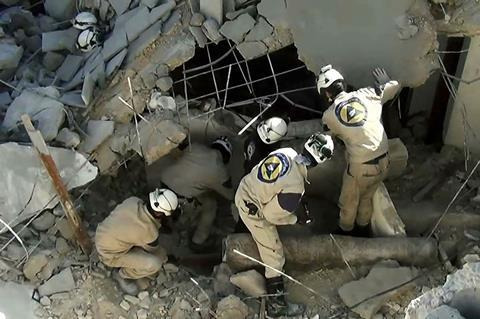
I’m not gonna say anything bad about this movie. I’m not a lunatic. It’s not an easy thing to see real footage of dead babies, but one of several interesting things in this documentary is how these guys go from digging bodies out of rubble to attending a wedding. Life goes on, it turns out, even in a place like Syria. These are people who fantasize about going to Turkey, but recognize that they’d be greeted with resentment and bigotry there, and anyway feel a responsibility to stay in their homeland. Their happiness comes from being with their friends, and occasionally planting trees, or buying some pet fish. Their day job is rescuing people from random air strikes perpetrated by their own government. They’re legitimate heroes, and Bashar al-Assad is a legitimate monster. One funny thing, the user score for this movie on Metacritic is a bizarrely low 3.3, with a handful of reviews that accuse it of being Al-Qaeda propaganda. The reviews are written by people with user names like MetacriticSuccs, so credit to the Russian cyber agency for their thoroughness.
Detroit - Kathryn Bigelow

Kathryn Bigelow has become the master of telling macro stories about chaos. The first half hour about how riots turned Detroit into a war zone are perfect--maybe her best contained piece of filmmaking yet. When this movie settles into its plot--about how a bunch of racist cops tortured a group of black people in a cheap hotel--it’s such a natural extension of what she’s good at that it doesn’t feel like it all takes place in a single location, even though it does. As the night wears on you start to realize that in black cities like Detroit police were and maybe still are barely disguised domestic terrorists. When a character asks someone “will we be safe?” she’s referring to the cops, but she might as well be referring to the villain in a horror movie. This one shoulda got a lot more attention.
Personal Shopper - Olivier Assayas

I’ll start with a criticism: Kristen Stewart is really bad here. I actually think she’s a great actress, but here she’s a collection of her worst impulses: tics and stuttering, like an SNL parody of her. It’s actually not much of a liability though, because this is a movie that’s entirely about events and mood. I’m like six viewings away from understanding what the hell is going on in it, so here are just some thoughts: the movie does away with any ambiguity about whether ghosts are real. They’re all over the place, haunting houses and generally causing mischief. But the clarity on an afterlife does nothing to explain the plot of this movie. The bulk of it takes the form of an extended conversation over text between the main character and a mystery presence. It’s never explained whether this presence is haunting her or helping her, if it’s a ghost or a person or a figment of her own imagination. I half-heartedly entertained a theory that it was the boyfriend of the woman she worked for her screwing with her, which would make enough sense to be plausible, but not enough to provide the movie with any sense of resolution. Basically I have no idea what Assayas is trying to say, or what any of this means. I don’t know if I’m supposed to. It doesn’t matter. This movie is creepy as hell, and incredibly, superlatively good.
Lady MacBeth - William Oldroyd
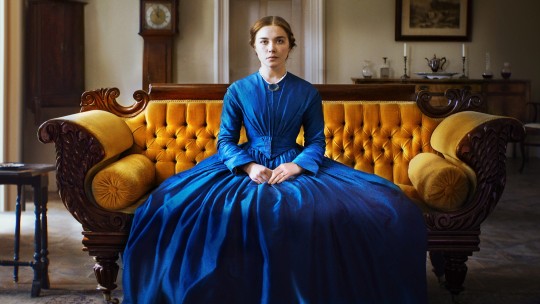
This movie is called Lady MacBeth because it’s essentially a retelling of MacBeth, if his wife had been more willing to get her hands dirty. It looks and feels like a period drama about a marriage arranged between families for financial reasons and a resulting affair of passion, but it never actually is that. From minute one it’s pitched at such a tense, bizarre level, that when Mrs. MacBeth switches from a sympathetic if inscrutable kept woman to a full out psycho, it’s not all that unexpected or surprising. It’s still heavy though, because MacBeth is a heavy play. And this movie absolutely lives up to that ambition.
The Florida Project - Sean Baker

Sean Baker’s last movie was about two black transgendered prostitutes in LA--a demographic that to my knowledge has never been the focus of a movie before--and rather than ask his audience to pity them he just told a story about them. It worked so well for me because it never felt like he was trying to please the cultural moment. He just realized this was an underreported American vibrancy. Here he takes a slightly different approach. Everyone and their mother has taken a stab at American poverty, but Baker manages to tell a story about adults living in harrowing conditions from the point of view of children who don’t realize their situation is difficult and so don’t feel any difficulty. Actually, now that I think about it, they are pretty similar. Both movies are about how daily life can keep the sadness about one’s condition at bay. For the prostitutes in Southern California, it’s whatever workaday stuff they have to deal with at any given moment. For the left behind margin-dwellers in this movie, it’s either children or childhood.
The Beguiled - Sofia Coppola
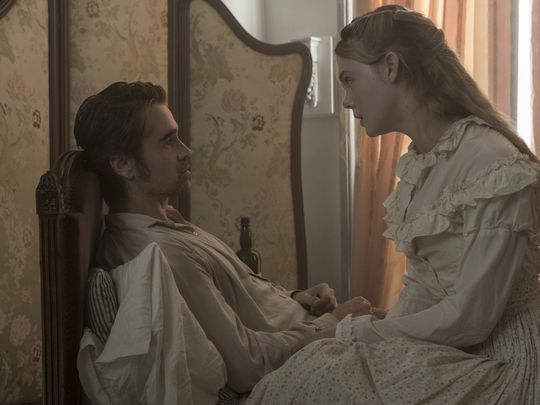
90 minutes on female horniness and the color white. Who says no?
Beatriz at Dinner - Miguel Arteta

You’ll forgive me for thinking this was going to be the cringe comedy it was billed as, with a Trumpian bent as a casually racist rich old guy makes increasingly inappropriate comments to an unexpected Mexican houseguest. But in retrospect, doing that would have put the onus on the Mexican to be uncomfortable, and that’s not what this movie wants to do at all. Instead she spends the whole night making everyone else deeply, cringingly uncomfortable. Which makes this movie much more interesting than the one it was billed as.
Gerald’s Game - Mike Flanagan

I’m going to reiterate an earlier point, which is that for a basic bang for your buck, it’s hard to do better than well made low budget horror flicks. Get Out may win the best picture Oscar, but at it’s heart it’s really just a best case scenario for what these movies can be--fast, fun, small, structured around really good ideas. They’re the best playgrounds for smart filmmakers. Gerald’s Game includes a scene near the end in which a woman rips the skin off her entire hand--a scene that stressed me out more than my first first date--but ignoring that I could easily watch it 600 more times. The most watchable movie since, well, Get Out.
Roman J. Israel, Esq. - Dan Gilroy

Here’s a not terribly controversial opinion: Denzel Washington is the greatest movie star of all time. Who’s better? Jack Nicholson maybe? Cary Grant? His total comfort in front of the camera, his powerhouse intensity, his towering presence, the way words roll out of his mouth like a waterfall from the fountain of youth. He’s been doing this shit now for four decades, and none of his movies are less than good. He is the king. I mostly loved this movie. Completely ignored by a general audience, I thought the trailer looked great and was disappointed it was removed from theaters before I could see it. For the first hour it’s rather near perfect. Denzel Washington talks and talks, citing legal statutes, expressing disdain for the obviously fucked up legal system, stuttering through social situations he never bothered to learn how to navigate. He’s confident but not comfortable. The second half goes off the rails. It’s the kind of mess you want to blame a studio for, or an angry producer who was annoyed there weren’t more car chases. But maybe Gilroy--who’s Nightcrawler was a more coherent movie--just lost the plot somewhere along the way. No real matter. More legal dramas should be this sharp and this fun. And one must hail the king.
Mudbound - Dee Rees
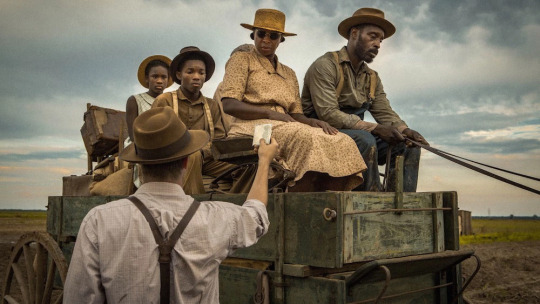
For the first 45 minutes this movie has an As I Lay Dying quality, where multiple narrators lay out the state of their moral and historical situations in portentous southern language that always sounds profound when done well, like it is here. It never gets quite that deep again, but it becomes a sober and accurate look at what this country, particularly the south, would have been for blacks, women, and even white men in the 1940s. Halfway through I started to wonder if any movie had ever shown how plain old fashioned American racism strips away the dignity of blacks and the humanity of whites as well as this one does. 12 Years a Slave, maybe, but even that one cheated a little bit by being a horror show. Also, Rob Morgan, who plays the paterfamilias of the black tenant farming family, especially finds the Faulkner in his character’s position. For my money he’s the breakout star here.
Icarus - Bryan Fogel
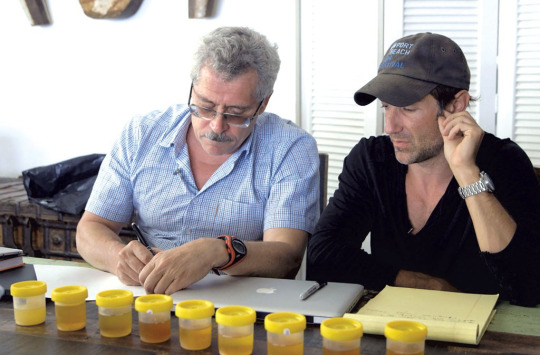
A problem I have found with certain documentaries that rely on their primary sources to tell their story is that the narrative can get blurry. This is a movie that would benefit from a narrator just to keep an eye on the spine of this fascinating true life event. The premise seems to be that a filmmaker stumbled completely by accident onto something so interesting that it obviously needed to take over his movie. Maybe a better filmmaker would have stepped back and asked some of the bigger questions presented by this narrative, like, why did this scientist seem compelled to run Putin’s national doping program? Maybe a master filmmaker would have dug into the heart of a man like Vladimir Putin who felt compelled to orchestrate a national doping program, a true story of global deception and malevolent corruption that deserves dozens of movies. But you’d have to be a walrus to not be intrigued by this guy, or eternally grateful that someone with a camera managed to catch him as his crime was discovered by the IOC and his government threw him under the bus and forced him into witness protection.
The Discovery - Charlie McDowell

I’ll get this out of the way first: the twist is not good. A squander of a pretty great concept that they could have anything with. But the rest of the movie is. The concept really is neat, and the whole thing looks great. This is a small, self-contained movie that chugs along at a heady pace. It’s a perfect Netflix movie, a genre I suspect we will all learn to recognize pretty soon.
Wonderstruck - Todd Haynes
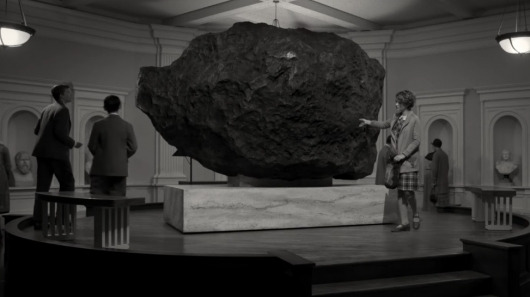
I’m Not There is a profoundly silly movie, but Carol was made by a consummate pro, so I’m inclined to like Todd Haynes, and trust him when he experiments by, say, making a silent movie that intersplices stories from two generations and shoots them to look contemporaneous to movies of their respective eras. Like The Shape of Water, there must be a wavelength that really gets this movie. Maybe one day I’ll give it another shot, but fuck it’s slow.
Good Time - Ben and Josh Safdie
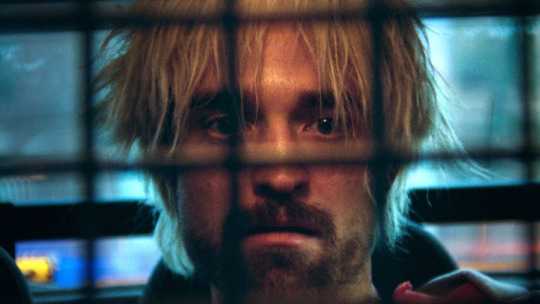
Woah. Let’s see here: This is a grim, ugly, unpretty neon movie about a side of New York that most people don’t like thinking about and will generally choose to ignore. It’s not just the poverty--there’s a darkness here, an ugliness and a savageness that’s usually examined sociologically if it’s examined at all. But this movie lives in it like it grew up in it, which for all I know it did. It’s about a white guy--and his skin color is very relevant--careening through Queens, ruining lives along the way in a single-minded quest to raise enough money to make his autistic brother’s bail. Mostly it’s so exciting and unpredictable that it flies by, telling a story about a guy with the survival skills of a cockroach getting through a night we might describe as eventful. And I need to give special mention to Jennifer Jason Leigh. She’s only in one scene, but she takes it to a dark, viscerally disturbing place. I don’t know that much about her as an actor, I don’t know what kind of work she usually does, but in a movie populated by characters I sincerely wish could have better lives, she will stand out in my mind for awhile.
Song to Song - Terrence Malick
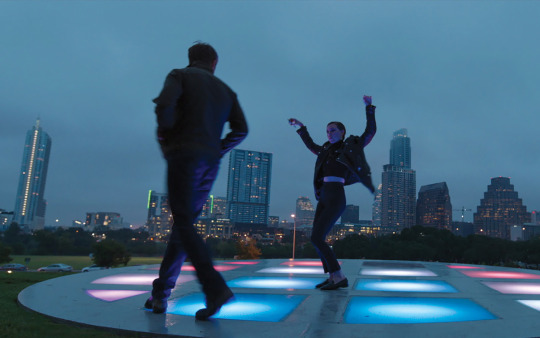
Part of me wants to like this movie, or at least respect it. Every shot is interesting--in fact that might be most of the point: every scene takes place in a visually arresting location, the actors do odd things with their bodies, the camera shoots them from weird angles. And I admire that Malick has mastered an impressionism that is uniquely his. But I also suspect that maybe this is just a bunch of bullshit from a guy who’s talented enough to make decently interesting work without trying very hard. I mean, he used to take 20 years to make his movies, now he’s pumping out one after another like he’s Woody Allen. And I think a movie can only have so much emotional resonance when the average scene lasts about 5 seconds. I don’t know, I can sort of see why a person might like this sort of thing, if a person was so inclined, but man did I think it was boring. If he’s just gonna make ponderous nonsense now, then at least The Tree of Life had the decency to be about the meaning of the universe.
Hostiles - Scott Cooper
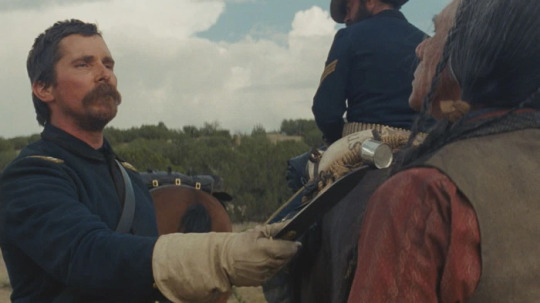
This is first and foremost a really solid western. Stoic and sharp and very well made. Christian Bale is amazing at this and should do one of these every couple of years. My only complaint is that it could have been better. It could have been a masterpiece. But it points to ideas about the inhospitality of the American frontier that it never really manages to show. People knocked the Revenant, but that movie really slaps you on the ass with how tough it was to hang in the old west. Hostiles wanted to do the same thing, but it settles instead on the simpler thesis that we stole this land from it’s rightful inhabitants. Which, I mean, fair enough I guess.
Molly’s Game - Aaron Sorkin
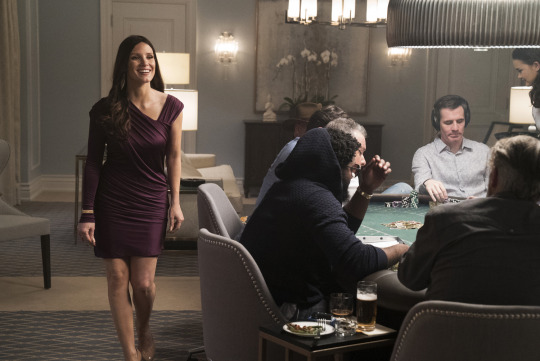
If Aaron Sorkin wants to write a novel and release it as an audiobook narrated by Jessica Chastain, guess what, I’ll listen, but he is not a director. This is a movie where the voice-over will voice over dialogue because good lord does he love to write, and a movie where the main character at her lowest point will narrate her depression over a shot of her in bed, because good lord does he not know how to show. So this movie loses something his screenplays don’t when they’re filmed by top shelf talents like David Fincher or Danny Boyle. But Sorkin is one of my favorite guys to write about because he’s so talented and also so flawed. He’s in love with academia, and with knowing things. I can’t imagine what he’s like to shoot the shit with, but I assume that the person he wants to be is the person he keeps writing--the hyper-literate Renaissance man (and now woman) with a top 99 percentile intellect and some kind of pathological drive. Lots of movies are about everymen, but neither you nor I will ever be a Sorkin protagonist. His doormen are wittier and better educated than we are. Anyway, his biggest flaw in my opinion, besides a tendency to get high on his own supply, which we might as well call a feature in this case, is his tipsy uncle sentimentality. But other than a scene at the end between Molly and her father, which is a cinematic crime against humanity, this movie mostly avoids that. It’s too busy being his most fun movie yet. Even more than Steve Jobs, which is where I learned to tear down my cynical walls and lean into his brand of goofy pop intellectualism. Here’s my take on this one: it will not stand up to repeat viewings. At all. Like, at all. But it made me want to get a job in finance just so I can start going to high stakes poker tournaments.
Kong: Skull Island - Jordan Vogt-Roberts

2017 was such a good year for movies that even bullshit like this was great. This movie pulls ideas whole cloth from the last Godzilla movie--here there’s also a benevolent monster god, a showdown between giant creatures over the soul of man, and almost contemptuously fantastic cinematography (because if something this corporate can look this good, than how much should we even value high priced photography?)--but it takes itself a fraction as seriously as that one did, and is by legions less stupid.
Call Me By Your Name - Luca Guadagnino

More movies should have stakes this low. There’s a lazy confidence here that I like a lot. This is how a movie about a 17 year old boy’s summer should feel. Nothing really matters, and every day is pretty good. Over the course of two hours he will swim, smoke, read, and fuck a boy, a girl, and a peach. He’ll grow up to become a gay man with a pretty normal and hopefully happy life. He’ll remember this summer very fondly.
Win It All - Joe Swanberg

If every movie were like this, movies would be a lot more boring. But I suppose there is a space out there for simple stories told simply. The best scenes are the ones with Keegan-Michael Key, who is so charismatic that he risks derailing the utter unexceptionalness that is this movie’s point.
A Ghost Story - David Lowery
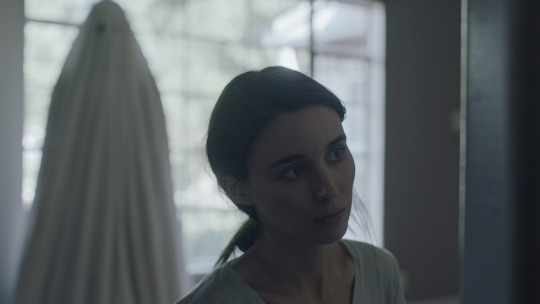
Does it seem gimmicky to make a movie about a dead husband as a guy in a white sheet with two eye holes cut out out like a child’s Halloween costume? I don’t know, the effect in practice to me was to make this celestial being look lonely and sad. He hangs his head in a silent longing and watches time hurdle through space from a fixed point he either can’t or won’t leave. This is a quiet, still movie; the kind that doesn’t cost much and is probably over-represented at film festivals. But it is, and forgive the sincerity here, devastatingly beautiful.
Phantom Thread - Paul Thomas Anderson

I wanted to give this a few more days to sink in before I wrote about it, but I’m nothing if not a content provider, so here we go. As the greatest artist of a generation ought to do, PTA upended my expectations about his style with this one, creating something new and challenging and not beholden to his previous work. His last couple movies have been about tension and release. This one really isn’t. Instead it’s a love story, or actually I mean it’s a relationship story, about the hunt for connection that all relationships become after the initial euphoria wears off. It’s still a Paul Thomas Anderson movie, so it’s haunting and strange and made up of tense dialogue that obfuscates it’s artistic intentions, spoken by strange people with unclear motivation. But it’s also funny, and mostly straightforward. It’s centered around a relationship, but this movie is as impossible to reduce as the last one, or the one before that. There are limits to my partisanship--there’s a dandyism to this movie that I don’t like at all, but this guy is consistently setting his sights up past the rafters, and throwing walk off touchdowns every single time.
I Love You, Daddy - Louis CK
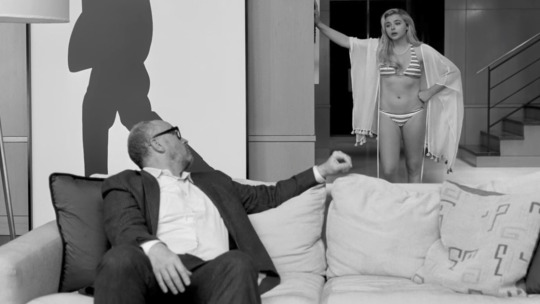
Louis CK’s disgrace is the only one I’ve had trouble reckoning with, because he’s the only person so far to go down who really had more to say. Unfortunately, if this ends up being his last project, it’ll have been a disappointing note to end on. Louis’ artistic problem is that he’s too hard on himself. Very often he will set up a disagreement between himself and another character and have the other character essentially school him, even if he’s not wrong. He has a tendency to shortchange his own point of view. But it’s never been detrimental to his work until now. This movie is essentially a professionally successful version of the pathetically passive guy Louis always plays getting chastised by a series of articulate women. The writing is very often great--he’ll probably never get his due now, but he’s the best writer of dialogue since Woody Allen--and it’s a little sunnier than his usual point of view allows for, but it’s less focused and less interesting than either of his two TV shows.
The Post - Steven Spielberg
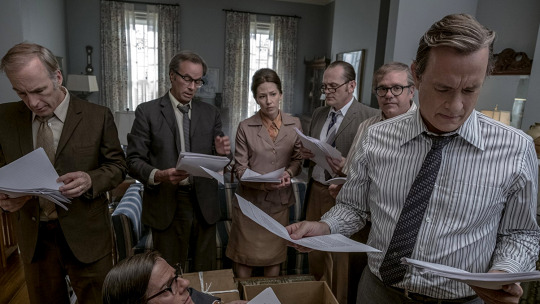
Like Bridge of Spies, this is a minor work from the master. The only bad thing I can say about this movie is that he’s not doing anything new, and the subject matter invites comparisons to more interesting movies, like Spotlight, and All the President’s Men, which would make a hell of a second billing here as a diptych about the rise of the Washington Post. Unlike Clint Eastwood, I believe Spielberg still has extra gears. He still has a few more home runs in him. But like Eastwood even his most workmanlike products are made with a level of casual mastery that makes them perennial top tenners. I don’t know that this movie was made for any reason other than to express a distaste for the current occupant of the White House. It still earned Meryl Streep another Oscar nomination.
It Comes at Night - Trey Edward Shults
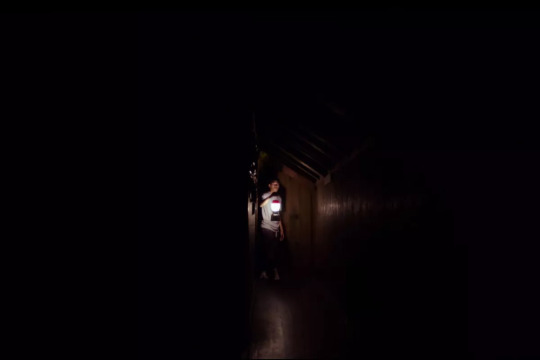
Why are all these low budget horror indies so good?
The House - Andrew Jay Cohen
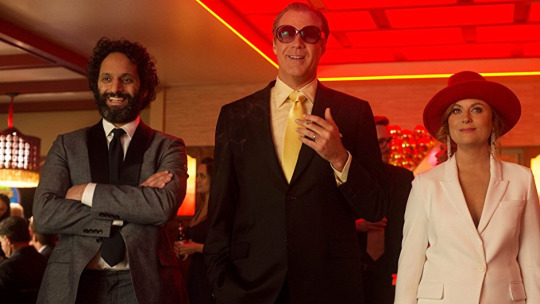
Will Ferrell movies have reached this weird place now where the concepts are funny but their executions aren’t. They’re coming up with good ideas but filming them straight because at this point they’re businessmen with schedules to keep. There’s none of the peripheral lawlessness that made up his earlier work, or makes up really any good comedy, especially in the Apatow era. This movie is only worth watching for two reasons: 1. it will pump you up if your on the way to the casino, and 2. evil Amy Poehler is so much better than civic do-gooder Amy Poehler.
Snatched - Jonathan Levine
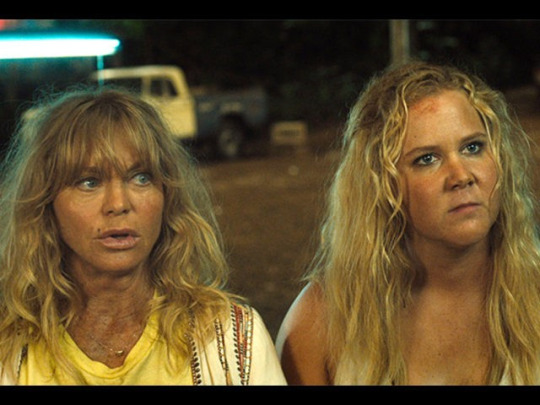
Is Amy Schumer the first comedian since Jerry Seinfeld who’s funnier in their scripted work than they are in their stand up? Anyway, until she starts phoning it in like elder statesman Will Ferrell, or is supplanted by someone newer, she’s my comedy protagonist of choice. Why did people take on a pass on this? Cuz the plotting is lazy? When isn’t it in a comedy?
Mark Felt: The Man Who Brought Down the White House - Peter Landesman
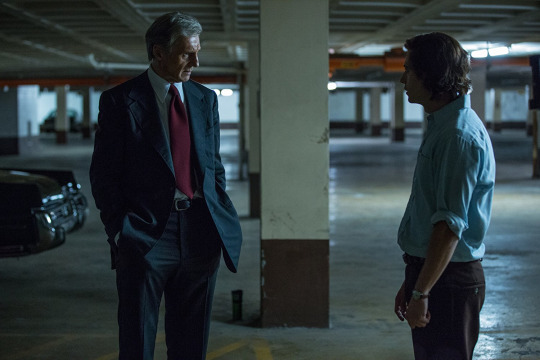
This movie is a huge mess but I refuse to not like it. It’s murky, paranoid, serious; in other words a great spy movie, about institutions of American government that dislike, distrust, and actively work to undermine one another. Nixon is barely even mentioned until the end, and the Washington Post is barely mentioned at all. But this should have been a miniseries or a novel. It’s a ten hour story condensed into two, and thus makes even less sense than a good spy movie ought to.
The Dark Tower - Nikolaj Arcel
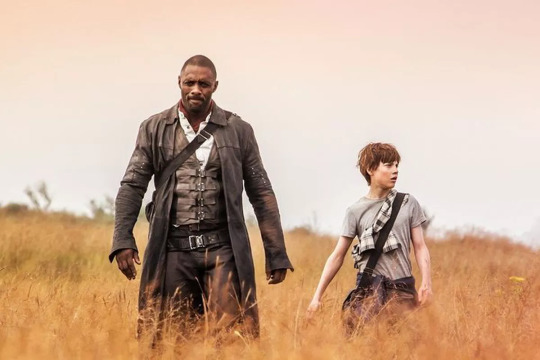
As someone who has not read the books and wasn’t even aware there was a cult behind them, I can say this is a perfectly enjoyable plane watch.
Battle of the Sexes - Jonathan Dayton and Valerie Faris
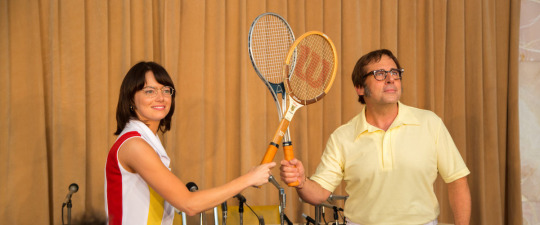
I suppose this is the safe and logical choice for the recent Oscar winner, and it’s not a bad movie by any stretch. The actual battle scene at the end is quite excellent. But ignoring the current political environment, a movie where a tennis prodigy discovers her sexuality and takes on a boy’s club is much less interesting to me than a movie about a hustler who’s past his prime, gambling with his buddies and turning himself into a heel. Steve Carrell plays it as a good natured ode to a dopey strand of American hustle. He’s the best thing in this. But of course that’s not why this movie got made. I guess I’m ultimately just a member of the boy’s club.
American Made - Doug Liman
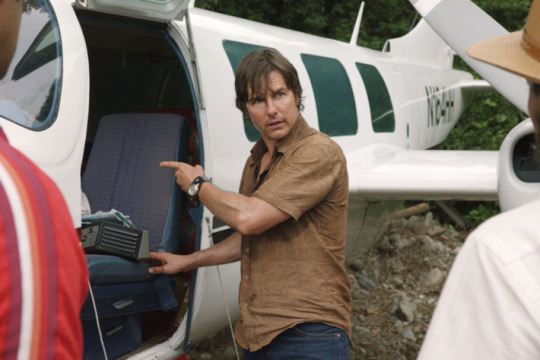
Speaking of American Hustle, this Goodfellas in planes strikes me as more Hustle with drugs, inasmuch as the ostensible good guys, the feds, are really just a bunch of selfish ambitious cowboys playing with house money. Where Bradley Cooper’s FBI agent was too stupid to realize how bad he was at his job, American Made’s Domhnall Gleason, who I understand is now in every movie, is some kind of CIA stud with no accountability and no budgetary restraints, coming up with increasingly outlandish ideas for which there are no consequences at all. When Tom Cruise starts working with Colombian drug cartels, the implication seems to be that everybody knows and nobody really cares. I’m not sure this movie makes any sense at all, or if it’s supposed to. It’s buoyed by movie star Tom Cruise at his movie star best, bringing a slight, slight maturity to his Top Gun self.
Star Wars: The Last Jedi - Rian Johnson
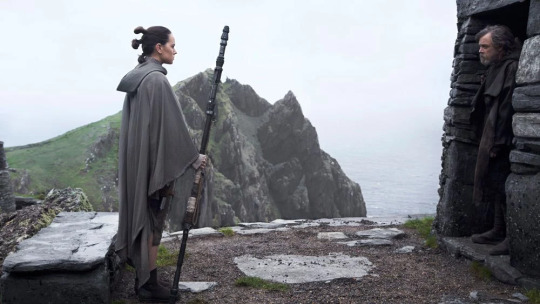
In The Force Awakens Adam Driver was the only good part of a bad movie. Now he’s the best part of a great movie.
The Lost City of Z - James Gray

The epic as a genre seems to me inherently flawed; who wants a movie that goes on too long and changes tone 7 times? This is an interesting one: it's first foray down the river comes with Apocalypse Now ambitions that it holds its own next to. The second trip is fun and captivating. The third trip, after extended scenes of World War One and, I don’t know, some family stuff, is too little too late. Basically, when this movie is in the jungle, it’s great. When it’s not, it’s not.
Lady Bird - Greta Gerwig

Let me stand apart from the glut of people my age who thought this movie was made specifically for them, and say that this movie was made specifically not for me. I can’t think of anything I want to see less than a coming of age tale called Lady Bird about a high school senior who decides to call herself “Lady Bird.” But the thing about good movies is that they transcend premise. Greta Gerwig isn’t dogmatically sticking to genre here--the dialogue is sharper than the average movie about an idiosyncratic high school senior, the parents and their financial situation occupy a more central role, and when the protagonist briefly tries to fit in with the cool kids, she kinda pulls it off--but really she’s just made a better coming of age movie than most people who try ever do. This is what we all would like to turn our childhood memories into. And for those concerned, like I was, by a trailer full of precious dialogue, the movie is so snappily edited that lines that would read as self-indulgent or treacly come out down and dirty in practice.
The Disaster Artist - James Franco
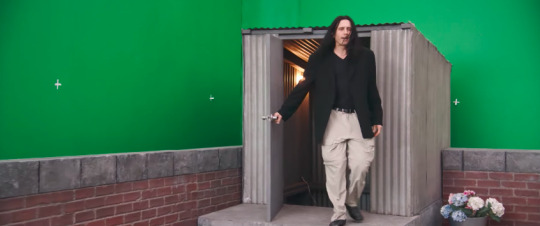
One of the impressive things about this movie is that it’s a comedy that doesn’t come at the expense of it’s subject: a man who in a slurred Slavic accent tells a room full of theater students “I’m not villain, you are villain!” A man who in other words could have an entire Office-style show built around him by a less charitable filmmaker. But James Franco is here to celebrate this bad movie, and honor the weirdo who made it. This isn’t the direction I would have gone in: I’d be too curious about the why and the who. But Franco does a really good job with his material. This is a really good and funny movie, with a murderer’s row of supporting actors who should all be doing stuff like this rather than whatever the fuck Seth Rogen is working on right now. Franco paints Tommy Wiseau as a pretty damaged guy with boundless ambition and absolutely no understanding of how human beings behave or how to interact with them--at one point he talks about wanting to run his own planet--but he keeps it light. Our man Tommy gets a standing ovation at the end, which I don’t believe really happened, but in this context I support.
I, Tonya - Craig Gillespie
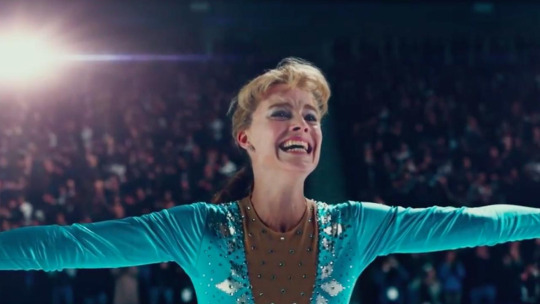
One thing about Tonya Harding is that if she were coming up now, in the era of Lavar Ball and Jezebel, she’d be uncontroversially loved, and never would have had to club anyone in the kneecap. As far as I’m concerned she’s owed a revisit, which this movie gives her, and makes her look sympathetic and talented and fundamentally decent, if a little unwilling to take responsibility for anything at all. Anyway it’s a pretty damn good movie. Not quite as wild as it’s masterpiece of a trailer suggests, but pretty fun and breezy the whole way through.
Jumanji: Welcome to the Jungle - Jake Kasdan

Nowadays, most theaters will let you bring alcohol into the screening. So here’s a fun game: go see comedies you have no interest in, and drink steadily throughout them. Preferably with others. I’m not being a dick here, I found this experience highly enjoyable.
The Shape of Water - Guillermo del Toro

Pan’s Labyrinth has earned Guillermo a ton of goodwill. And I mean, I caught part of Hellboy 2 on HBO the other night and that is a flick. This may be his next one-for-me, but it’s not Pan’s Cold War. The genius of his earlier masterpiece was that the descent into nightmare of its real life surroundings was mirrored by the descent into nightmare of its fairy tale. This is a pretty simple love story between a mute woman and a fish man, set during the Cold War. It’s a ripe premise and a ripe backdrop that Guillermo weirdly squanders. Any movie that casts as its villain Michael Shannon, the strangest and most intense man alive, and then makes him just another square 1950s Keepin’ up with the Joneses asshole, isn’t going to stand up to Pan’s Labyrinth. This movie is a love story between a mute woman and a fish man. It should be a whole lot weirder, is my point.
Logan - James Mangold

What this movie gets so right is rather than make super hero movies that could conceivably take place in our world, directors should make super hero movies that would take place if they were the real world. Hence the cursing, the ultraviolence, and the theme of consequence which hangs over Logan like a lampshade. Watching Wolverine and Professor X say “fuck” and brutally murder government agents feels like removing the sanitizing goggles that the older movies were shot through and seeing them for the first time as they really are. These are two badly broken people keeping each other alive. It’s also by happy accident a movie for the era of Trump, where a shitty present has the bad guys in the driver’s seat and forces everyone in the margins back into hiding. Patrick Stewart brings warmth and realism to a new version of an old role. This is the best super hero movie ever made.
Darkest Hour - Joe Wright

So Gary Oldman’s definitely going to win the Oscar here, right? It’s fine, he deserves it. I could have used more about who Winston Churchill was, why he was such an eccentric alcoholic, but as a portrait of a great man working through his defining moment this is a great movie. Between this and Lincoln I hope every new biopic is about the defining moment of a great person’s life. So much more interesting than biopics about great people.
Three Billboards Outside of Ebbing, Missouri - Martin McDonagh

At first I thought he was just making fun of American hillbillies. But if this isn’t his best movie, it’s definitely his deepest. Like a darker redneck Batman it’s main character lets a justified anger turn her into kind of a monster, and maybe gets redeemed at the end. It’s funny and entirely surprising. Sam Rockwell should get nominated.
The Big Sick - Michael Showalter
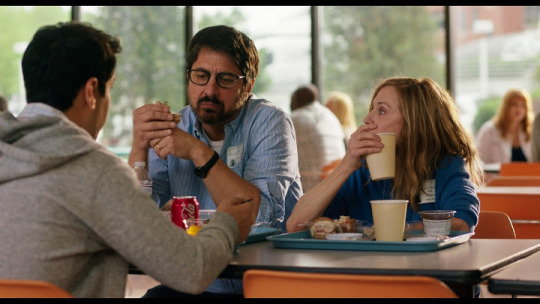
A movie about two saintly parents dealing with not only their comatose daughter, but an overgrown forty-year old child who’s rude to them yet refuses to leave them alone, and never has to face his own pathetic shortcomings because sometimes people are racist to him. Fuck this piece of shit movie.
Thor: Ragnarock - Taikki Waititi

Chris Hemsworth seems cool.
Last Flag Flying - Richard Linklater

Eh. I’m much less of a Linklater partisan than most, but this movie actually wasn’t that well received. It’s not bad, it just kinda meanders, and I actually don’t think Bryan Cranston or Steve Carrell are particularly good actors. It’s anger is righteous though, and Lawrence Fishburn is a titan.
Blade Runner 2049 - Denis Villeneuve

This one slows down a little once the plot kicks in, but holy god does it look good. A worthy heir to the original.
The Killing of a Sacred Deer - Yorgos Lanthimos
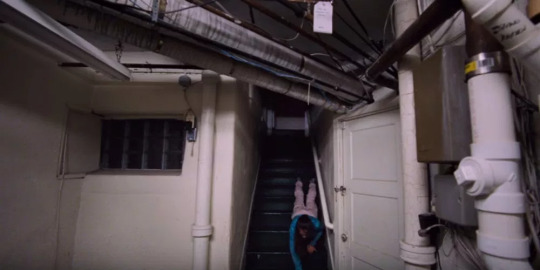
I think I figured it out--this guy likes to set up insane premises, force his characters to speak so flatly that it seems absurd, and then lift the gate and see how the ball rolls down the hill. Every character in this movie acts calm and rational and mostly human in the face of something so bizarre and terrifying as to defy logic. I like The Lobster more because I suspect it had more to say, but this one keeps you on a knife’s edge and forces you to prepare yourself for anything.
Wind River - Taylor Sheridan
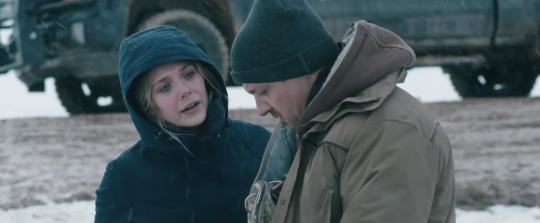
This is the third screenplay and first directorial effort from the guy who wrote Sicario and Hell or High Water, two of the best movies of the past few years. This is his worst movie. I suspect the culprit is novice direction. Despite this having a 501(c)4 title card at the end, for the first time I’m not sure what the point is or what he was trying to say. But I hold this guy to a high standard, it’s still pretty damn good. It looks great and the story’s good.
The Foreigner - Martin Campbell

This is a movie about Jackie Chan--still kicking ass in his 60s--avenging his dead daughter by boobytrapping a woods outside of a mansion, and another movie about a radical Irish politician and his cronies agitating for Irish independence, possibly through terrorism. Both of these movies should be awesome, although only one of them is. I don’t want to spoil by giving away the answer, but you can probably guess.
Marshall - Reginald Hudlin

A pretty simple courthouse movie about the future Supreme Court Justice when he was just a lawyer who apparently never spent a day in his life being intimidated by racism or the second smartest guy in the room. Sure, why not?
The Babysitter - McG
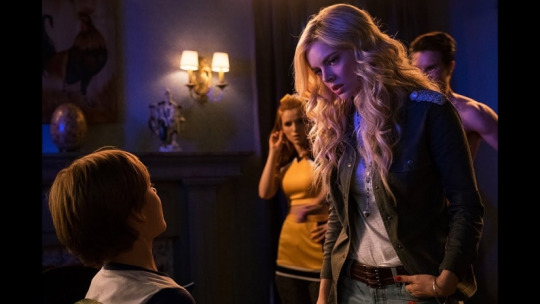
The second best horror/comedy of the year. My man McG is still killin’ it.
The Meyerowitz Stories (New and Selected) - Noah Baumbach

Noah Baumbach is a guy who likes a lot of stuff I don’t, but he’s enough of an adult here to write adults who don’t seem trapped in the imagination of a guy who hasn’t grown up yet. This is a really entertaining movie. Adam Sandler is very good.
It - Andres Muschietti

I’m a little surprised this didn’t take more flack for being the R-rated Stranger Things. This is also about a group of oddball friends dealing with something weird and scary in that sleepy town called 80′s Nostalgia. It even has one of the same damn actors. But maybe it didn’t take more heat for the simple reason that it’s really good. It might not hold up on repeated viewings the same way Stranger Things really doesn’t, but it’s the best horror/comedy of the year.
mother! - Darren Aronofsky
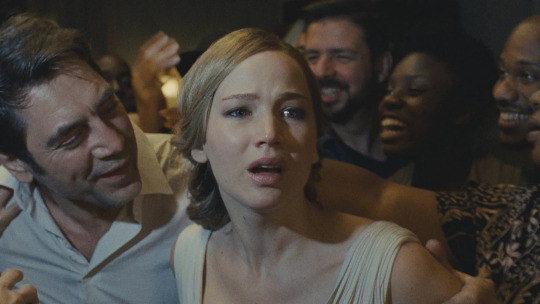
The more I think about it, the more I like it. I went back and watched some of his other movies, and concluded that Black Swan might be his masterpiece by default, but he’s never made something I really loved. He still hasn’t, but this might be his best movie yet. It’s about Adam and Eve, and it’s about mother earth, and it’s about a self-absorbed artist wrenching everything he can out of his muse. But it seems like Aronofsky is having fun screwing around with all these concepts rather than somehow trying to tie them all together or say something profound about any one of them. Which makes the movie a lot more fun than it’s reputation suggests. In any case, my immediate take walking out of the theater was that it more than anything was about some poor guy who gave up everything he had just to write a damn poem.
Logan Lucky - Steven Soderbergh
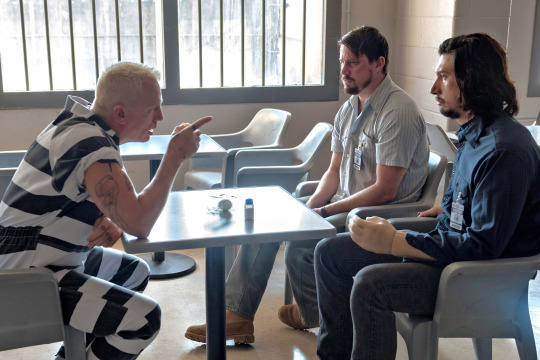
This one didn’t do nearly as well as I thought it would, which might have more to do with its distribution model than anything else. Ocean’s 11 for hillbillies couldn’t be more accurate, but it’s not criticism. At least not coming from me. First of all, Ocean’s 11 is like the perfect movie. Second of all, I mostly love redneck culture. Adam Driver has an amazing ability to land roles that shortchange him and make great work out of them anyway. And every real man knows Channing Tatum is a better star than George Clooney.
Dunkirk - Christopher Nolan

Chris Nolan isn’t any good at telling stories, and anyway doesn’t seem to like doing it, so it’s no mystery why his best movie bags the plot completely. Even with it’s time looping gimmick premise this movie takes place entirely in real time, in the present, which is, it turns out, by far the best way to shoot a war movie. It’s hard to imagine something better coming out this year.
Baby Driver - Edgar Wright
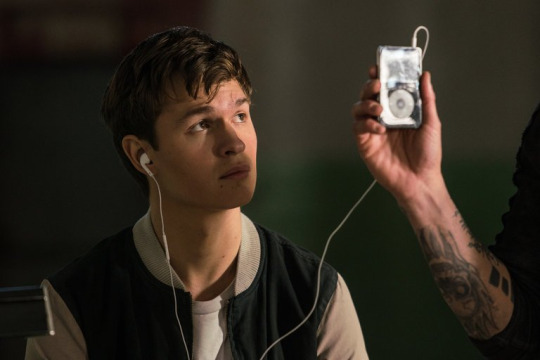
The best music video ever made. Pour one out for Kevin Spacey.
Wonder Woman - Patty Jenkins

I resist these pieces of shit like Roy Moore resists girls who can buy their own alcohol, but every year I end up seeing one or two. This is probably the best case scenario for a DC comic book movie in 2017. Gal Gadot is a very pretty lady. This coulda been a good WWI movie.
Norman: The Moderate Rise and Tragic Fall of a New York Fixer - Joseph Cedar
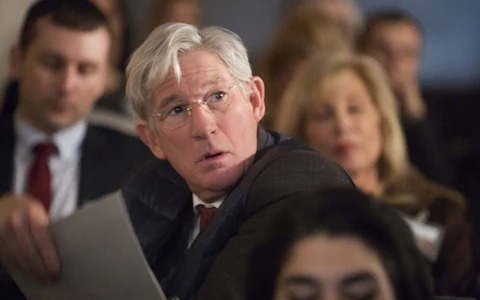
Richard Gere plays a possibly homeless and mostly benevolent conman who befriends an Israeli bureaucrat and sees his fortune briefly change when said bureaucrat stumbles into the Prime Minister position. I walked into this one completely blind because it was March and I wanted to see a movie. I might be the only person outside of Israel who’s ever seen it. Which is unfortunate, because it’s better than a movie dumped out in March has any right to be. Kinda funny and kinda sad. Kinda satirical and very warm.
Get Out - Jordan Peele
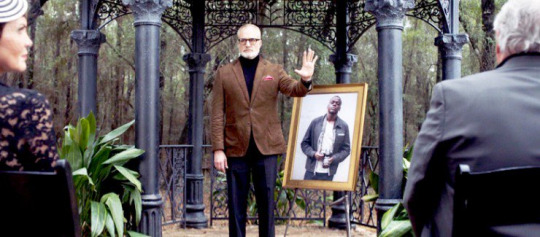
Of course it’s a little overrated at this point. How could it not be? But the first hour of Jordan Peele’s cultural explosion is perfect--a breakdown of every awkward moment between black people and--let’s be honest--all white people. The second half is less deep and a little less fun: it’s when the social commentary flick turns into a genre film. But it’s a damn good genre film. Deservedly on everyone’s top ten list.
A Cure For Wellness - Gore Verbinski

I caught this one of the strength of it’s trailer and thought it was excellent, a creepy kind of horror movie that not enough people saw, about a health clinic that either prolongs or sucks the life out of rich retirees. Kind of a Shutter Island for a crowd less inclined to have its mind fucked.
0 notes